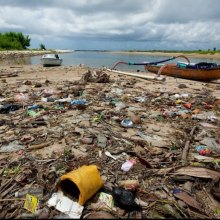
UN rights expert urges States and businesses to prevent childhood exposure to toxics...
UN rights expert urges States and businesses to...
Ohchr: The United Nations Special Rapporteur on human rights and hazardous substances and wastes, Baskut Tuncak, urged governments and businesses across the world to prevent the widespread childhood exposure to toxics and pollution which has triggered a ‘silent pandemic’ of childhood disease and disability.
“Children everywhere are being born ‘pre-polluted,” Mr. Tuncak warned ahead of a day-long panel debate of international experts on children’s rights and the environment, organised by the UN Committee on the Rights of the Child at Palais des Nations, UN headquarters in Geneva, Friday 24 September.
“States have an obligation to prevent children from being exposed to toxics and pollution, and businesses a corresponding responsibility,” said the expert who will present at the event his 2016 report to the UN Human Rights Council on the impact of hazardous chemicals and the rights of the child. “Case after case has illustrated the myriad of rights violated when States and businesses fail to prevent the exposure of children to toxics and pollution.”
“Children are arguably the most vulnerable to toxics and pollution. For years, they are completely defenseless. They are impacted in ways in which adults are not. They are exposed at higher levels than adults, including to toxic chemicals found in their mother’s body,” he said noting that his report responds to numerous cases of children poisoned by toxic chemicals and pollution in recent years.
In Flint, Michigan, 6,000-12,000 children, mostly African-American, were exposed to high levels of lead in their drinking water. In South Korea, an untested, under-regulated consumer product killed over 90 victims, including several babies and pregnant women. Around the world, highly hazardous pesticides continue to kill and injure children who engage in one of the worst forms of child labour or are accidentally poisoned through contaminated food.
“A child’s best interests must guide the interpretation and implementation of the UN Convention on the Rights of the Child. The child’s best interests are best served through the prevention of exposure,” Special Rapporteur stressed.
(*) Check the Special Rapporteur’s report (A/HRC/33/41): http://www.ohchr.org/EN/Issues/Environment/ToxicWastes/Pages/Annual.aspx
 Reload
Reload
